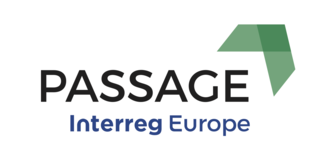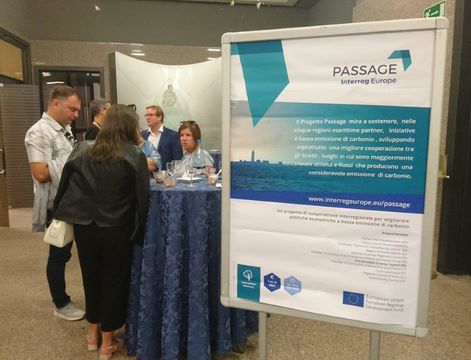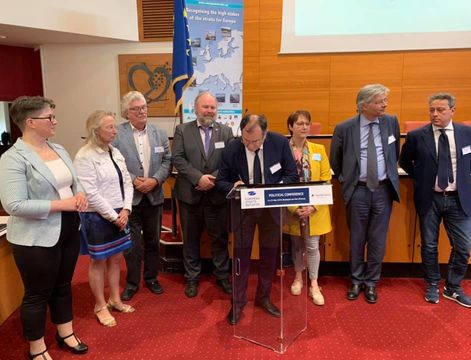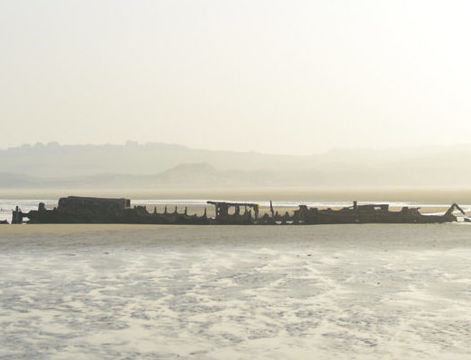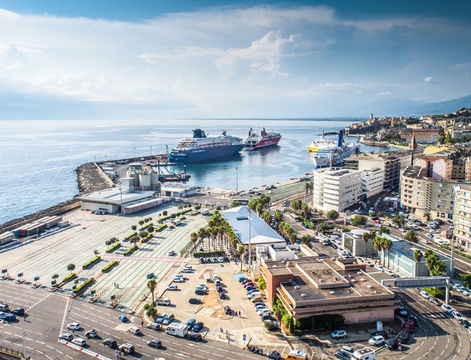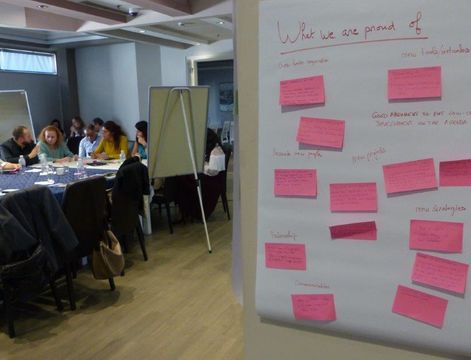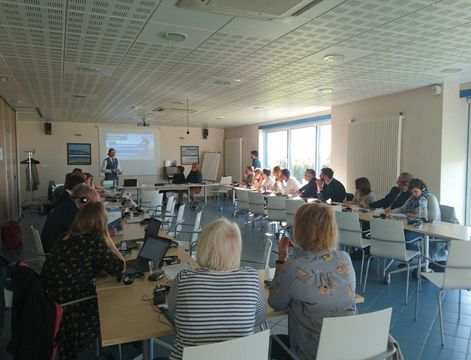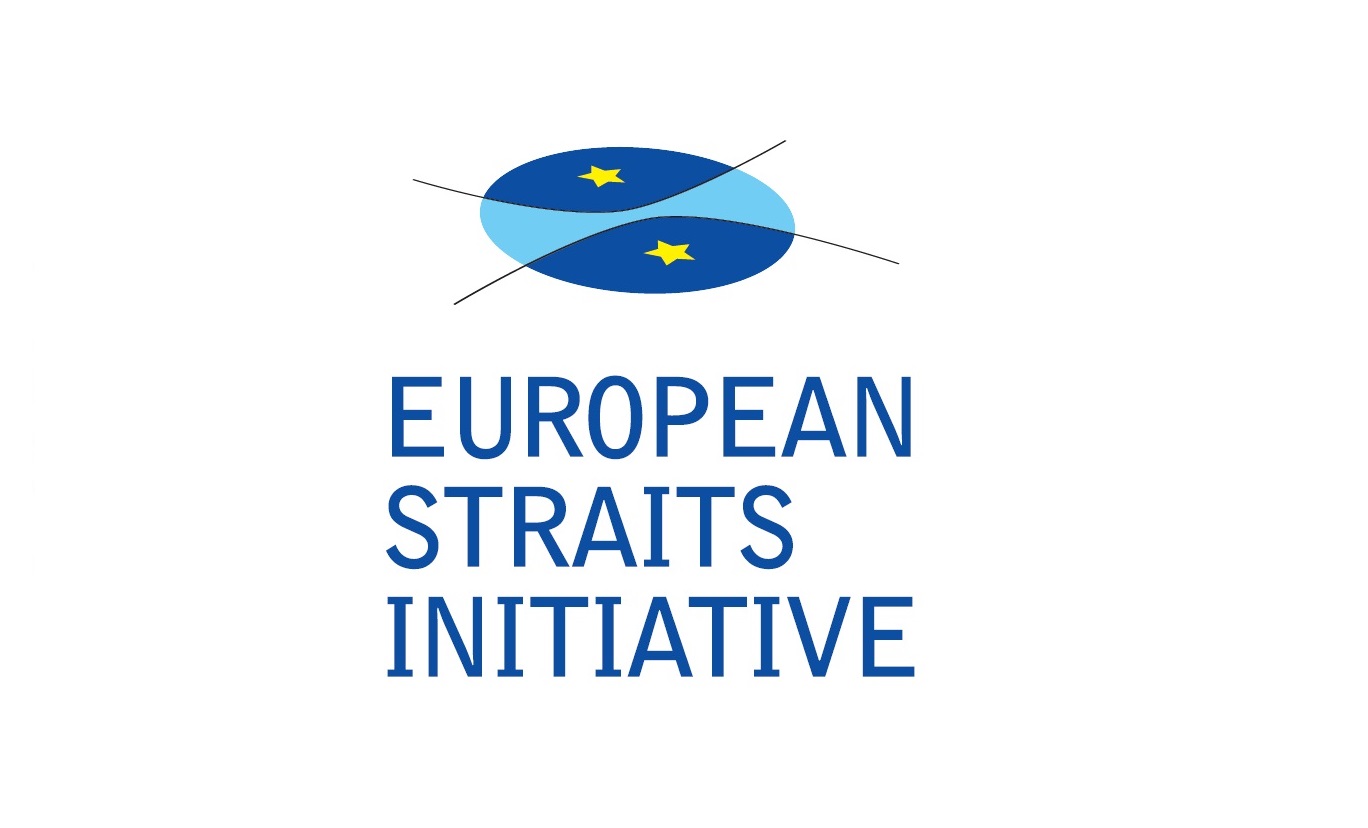Interview with Kati Vuks, community manager at Demos Helsinki (Finland)
The think-tank Demos Helsinki develops a specific approach to support startups, in particular those acting for mitigation of climate change: the Peloton Club. PASSAGE partners selected your eco-systemic approach as a good example of support to entrepreneurship and social innovation in the framework of low-carbon transition. Can you tell us more?
Peloton Club is a peer-incubator, accelerator and an ecosystem. We connect early-stage smart & clean startups with corporations and cities in order to enhance creation and development of new resource-smart business models, products and services. We run workshops, innovation camps and acceleration programs, as well as host community gatherings known as Peloton Club Nights. During the last 8 years, we have created a unique entrepreneurial community, one that is open to a wider set of people. One that attracts wide range skills necessary for transforming cities/food/transportation/housing, including lifestyle-entrepreneurs, enthusiasts, designers, researchers, urban activists, professionals, city officials, students etc.
Starting point is the fact that change of technology is not enough to succeed low-carbon transition and that change of behaviour is necessary as well. Is it difficult for enterprises to change behaviour? How can you make sure it meets the consumers’ demand?
Peloton approach involves creating and scaling up behaviour change businesses. In terms of resources and energy, the most important decisions people make in their lives relate to mobility, housing and eating. This is where most of our money is spent and also where the majority of the emissions come from. We work with companies to change behaviours regarding those activities, involving other stakeholders in concept development, co-creation. Most of the companies we have worked with throughout the years have mostly managed to shift their attention to ways of benefiting from the behavioural change of the customers. In our acceleration programs, significant part of the process is the business experiments conducted. The startups or for example incumbent-startup pairs have the opportunity to test their business models and new products/services within real life testbeds and real users, in order to improve their concepts and to make sure it meets the consumers' demand.
Can you explain how you manage to involve different stakeholders together and what are the benefits?
We use many different co-creational methods as the basis of our workshops and two-day innovation camps. Peloton approach is about tackling the low-carbon future by co-creating ideas for new products and services (collaboration between different stakeholders) and adding value to old ones (e.g. internal workshops within the companies). For each case and program we firstly map the relevant stakeholders (either we help to find the right people within a company or/and map the relevant players in the market). Then usually we invite these different counterparts to a joint event (e.g. innovation camp) where we facilitate their discussion and co-creation process. Facilitation is important to be able to create a common ground for fruitful discussion between counterparts with very different mindsets (long-term thinking, strategies and goals versus fast-track, fail-fast innovative approach). Creating an open, “yes we can” feeling with trust between participants is key in the camps. We also organize Peloton Club Nights where these different stakeholders can meet in a relaxed networking environment. Participants are not just people who take part in the projects, but the whole Peloton ecosystem, from enthusiasts and community activists to CEO-s of big corporations and people working in the public authorities.
Helsinki region is a dynamic capital region; do you think a similar approach could be implemented in other European regions? What would you advice?
We believe that a similar approach can be implemented also in different regions. Building a community of like-minded entrepreneurship-driven individuals who care about the future of this planet and want to tackle big challenges is definitely possible also outside capital areas. However, we are certain that due to different characteristics, the background and current situation of those regions (existing startup infrastructure, activity level of the entrepreneurship scene, what kind of approaches, events and initiatives are already carried out and who are the key players in the current ecosystems etc.) play an important role of how and in to what extent the implementation of Peloton approach can be carried out. For example, we will start a collaboration in Nairobi, Kenya this autumn and the first step there is mapping the local startups/entrepreneurship scene and detecting the needs of the community to plan activities and events that activate the local community and create new opportunities for entrepreneurs.
Thank you!
